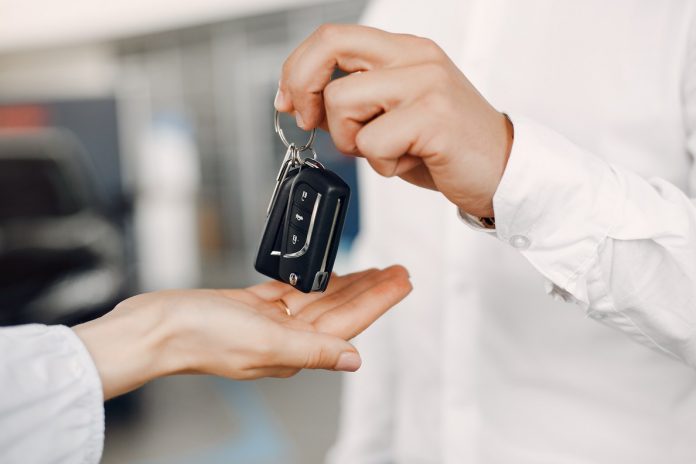Buying and leasing a car
Your right to legal protection
Your rights when buying a car abroad – including the amount of VAT you have to pay – vary depending on whether:
- the car is new or used
- you are buying it from a professional car dealer or a private individual
- the seller is based in an EU country or not
You generally have the greatest level of legal protection when you buy a new car from a professional seller based in the EU.
Under EU consumer rights rules, you have a minimum of 2 years’ guarantee if the car you purchased turns out to be faulty or not as advertised.
In some EU countries, the guarantee period may be reduced to no less than 1 year for used vehicles. The buyer and seller have to agree to this at the time of purchase.
Be aware that EU consumer rights do not apply to private sales, so you should be extremely cautious when buying a car from a private individual.
Check the car documents
When you buy a car abroad, make sure the seller gives you all the documents you need to register the car in the country where you live. Check that you have the original documents for the car.
Transport your newly purchased car
When you buy a new car in another EU country, you will need to consider carefully how to transport it home, as it will not yet be registered in the country where you live:
- You can tow the car home, hitching it to a fully insured and registered vehicle
- You can hire a specialised shipping company
- You can drive the car home yourself – for this you will need to get insurance and temporary number plates in the country where you buy the car
You should obtain your car’s permanent number plate in the country where you register your car, which is usually the country where you live or have your permanent residence.
Moving abroad with a leased car
Be aware this might be difficult. When you lease a car, you can use it for the duration of the lease and have the option to buy the car at the end of the contract. However, before that the person or company leasing the car to you is the car’s legal owner.
As you have to insure and register the car in your country of residence, you may also encounter problems if your insurance is not valid in the country you want to move to.
The person or company leasing the car to you may also be reluctant to agree to you registering the car in another EU country.
https://europa.eu/youreurope/citizens/vehicles/cars/buying-leasing-car-abroad/index_en.htm
Hiring a car
There are no specific EU rules on hiring cars, but you still benefit from your basic consumer rights when you rent a car in another EU country. This includes:
- the right to clear information
- the right to a fair contract
- access to alternative dispute resolution in case of disputes with the rental company
When you book a car, you should distinguish between rental companies and intermediaries or brokers. Intermediaries do not provide the rental car themselves, but book a car in your name with the rental company. In case of disputes, the rental company is the one responsible for the implementation of the contract, unless stated otherwise in the contract.
Limited right to cancellation
If you have booked a car online, by phone or email in the EU, you don’t automatically have the right to cancel and claim a refund, although the car hire company’s terms and conditions may allow it.
Non-discrimination principle
Car rental firms are free to set their own prices and conditions across different EU countries based on the costs they incur and other factors. However, when you hire a car – either online or directly from the premises of a car rental firm – EU rules ban discrimination on the grounds of nationality or the country where you live.
Look before you book!
Make sure you understand the terms and conditions before hiring a car. The main things to look out for are:
Insurance cover
Every rental vehicle needs to be covered by the third party liability insurance, which is valid in all EU countries. This insurance should be included in the rental price.
You can also take out optional insurance, covering other risks, e.g. injuries to the driver, damage to your vehicle, theft of your vehicle/its contents, vandalism, and legal assistance.
Make sure you know what damage your insurance contract covers. You should find this in the terms and conditions of the rental contract.
Driving a hired car in another country
If you’re planning to drive your rental vehicle in several countries you must inform the rental company when booking the vehicle. If it allows you to take the vehicle to another country than the visited one, it can ensure you have the correct vehicle documentation, insurance and breakdown cover.
If you live in the EU and you rent a car in a non-EU country, such as Switzerland, special rules apply when driving it in EU countries.
If you plan to travel with your rental car both in EU and non-EU countries – for example from Switzerland to France, Germany, Austria or Italy – you need to tell the rental company in advance. They can provide you with an EU-registered car in order to comply with EU customs laws. Most car rental companies in Switzerland provide cars with EU number plates for EU residents in order to comply with EU customs rules, but you should check with your car rental company.
The car rental company must also ensure that the car complies with the customs and traffic rules of the country where you will travel. For example, in many countries winter tyres are compulsory during certain months of the year.
Check road safety information when driving in another EU country.
Driving licence validity
If you are planning to rent and drive a car in another EU country, you also need to check that your driving licence is valid there.
Car Registration
Car registration documents and formalities
As a general rule, in the EU you are required to register your car in the country where you have your normal residence.
There is no EU wide law on vehicle registration. The following information reflects the practices in many EU countries.
To register your car, you will have to submit a number of documents.
- Roadworthiness certificate and proof of roadworthiness
- Registration certificate
- Proof of ownership
- Proof of value-added tax (VAT) payment
- Proof of insurance cover
- Certificate of conformity for new cars
Roadworthiness certificate and proof of roadworthiness
As a car owner, you are responsible for keeping your car in roadworthy condition as well as presenting it for roadworthiness testing 4 years after the first time it has been registered and every 2 years thereafter.
If you move to another EU country and want to re-register your car there, you will have to provide proof to the authorities that your car has passed a roadworthiness test in your former country of residence.
Registration certificate
When you register your car in the EU, the authorities will issue you with a registration certificate. The registration certificate will have one or two parts, this varies according to national rules in your country. Your car registration certificate has to be recognised by other EU countries when you travel or move to another EU country. If you need to re-register your car in another EU country, you will have to submit the original car registration certificate to the registration authorities in your new country. If your certificate consists of two parts, you have to submit both parts. Some EU countries may require additional documents before re-registering your car, so you should check the exact requirements in your new country.
You should have your car registration certificate with you when travelling by car or when moving abroad. Part I is sufficient if the document has two parts.
Proof of ownership
You may be asked to prove that you are the legal owner of the vehicle. Invoices used as proof of purchase should clearly state the VAT number of the car dealer.
VAT when buying or selling a car
Check what VAT is due when buying or selling a car in the EU or when buying a car outside the EU for import to the EU.
The information on this page covers VAT rules when buying or selling a car as a private person, it does not deal with business to business transactions.
https://europa.eu/youreurope/citizens/vehicles/cars/company-cars/index_en.htm






















